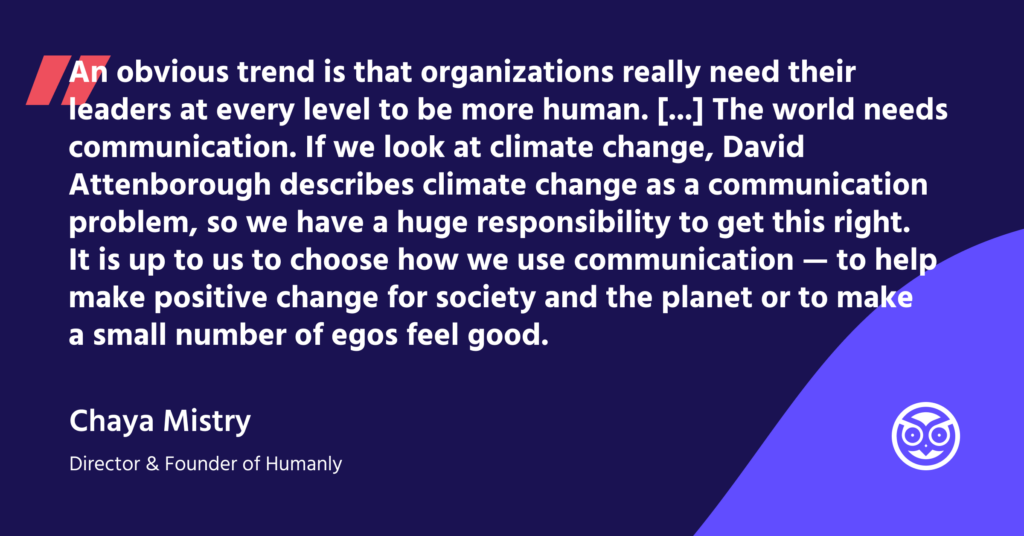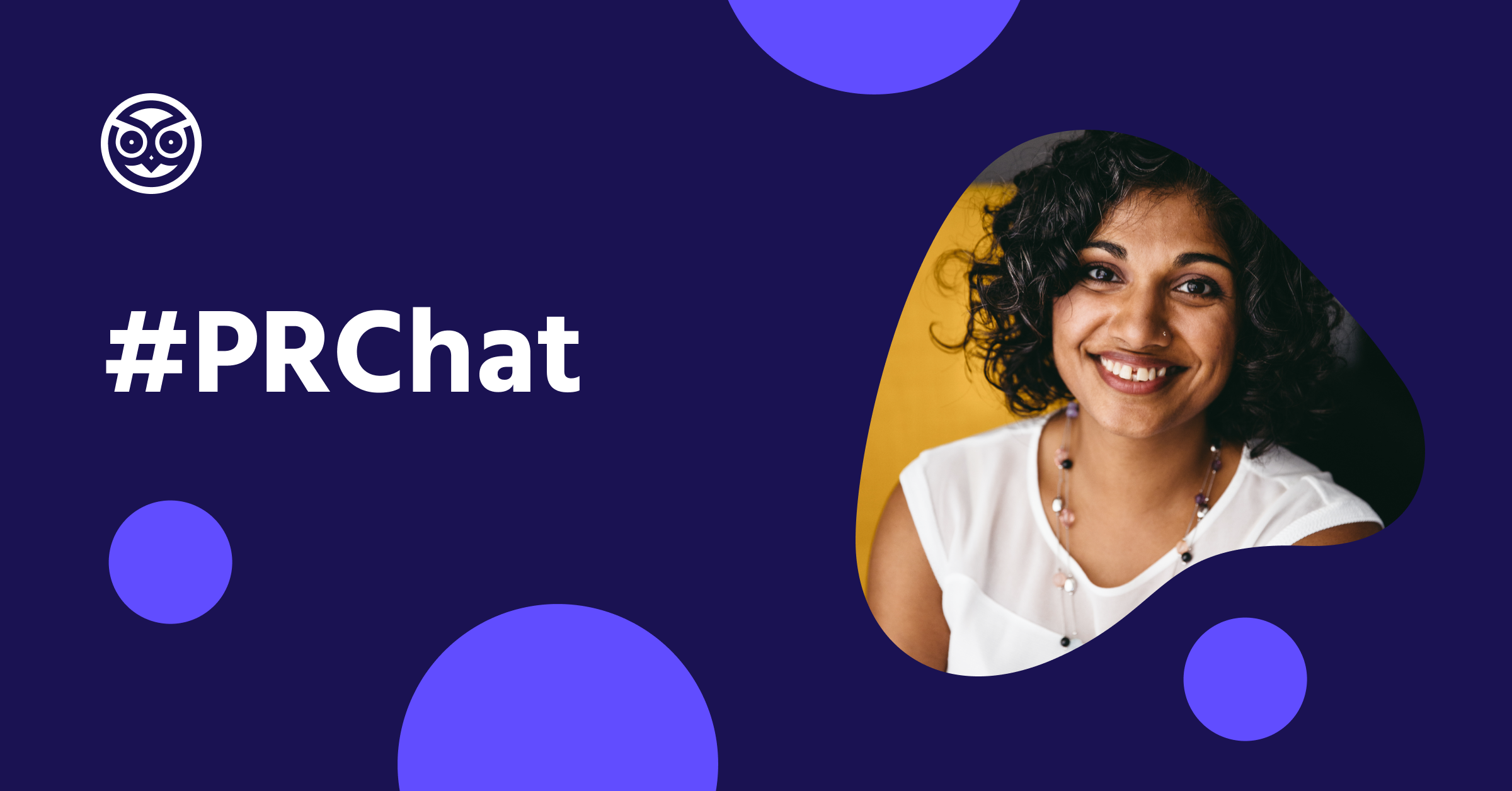Prowly #PRChat is where we put the spotlight on accomplished PR pros and get their advice, commentary, opinions and anything else they want to share.
In this edition, we welcome Chaya Mistry to the stage. She trains, consults and speaks on the topic of communications across several platforms and leads the team at Humanly, where she applies her impressive credentials and experience towards helping clients in a number of ways, all aligned with how they interact with others.
As a Vice Chair and Researcher for Chartered Institute of Public Relations Internal Communication (CIPR), Chaya brings a unique voice to any conversation. Here’s what Chaya had to say about the questions we shared with her.
Could you tell us a bit more about your work at Humanly?
My work at Humanly is about helping people in organizations to lead and communicate in a more human way by using my background in Psychology and more than twenty years in PR, Internal communication and leadership coaching.
I founded Humanly in 2019 and I now have six incredible associates across three different countries who help me work with leadership teams and organizations. We coach executives and their teams, helping clients to build soft human skills of self-awareness that turn into effective relationships, emotional intelligence and a mindset of curiosity and growth. Humanly supports change, transformation and alignment from a human perspective and in a human way with clarity, courage and compassion.
This year I am taking care of the Vice Chair role at the CIPR Inside committee, I volunteer a lot to support the PR community that has supported me so much in my career. I won a volunteers award this year to recognize my work in building an inclusive and resilient community.
How important do you think authenticity is in communications?
I believe you can't do good PR without authenticity. At the core of good PR is the ability to build mutually beneficial relationships between organizations and their publics and the foundation of that is trust.
You can't have trust without truth. Trust that you are who you say you are comes from the truth in the stories that we tell. They must be stories of who we really are and match the reality of what people experience in and with our organizations.
Authenticity is knowing yourself and being able to express yourself.
Let's be honest — an organization isn't the logo or the building or the assets. An organization is a bunch of human beings and what we are trying to do is build trust between them - their work, their voices and their stories.
This starts with the leaders in an organization. We need to help our leaders to be authentic rather than training them to read a script well.
What’s something you or your team have recently achieved that you’re really proud of?
I'm very proud of the work I have just completed with CIPR inside. I have been on an amazing research team who have spent their own time in an incredibly busy period during COVID-19, when internal communication teams have been under enormous pressure, to work on a valuable piece of research.
This research looked at how we engaged with line managers and how we use line managers in organizations to enhance all communications.
It is often something that we struggle to do well and so we sought out perspectives from HR professionals and line managers themselves to help us crack that nut. Watch out for it later this year.
What is the most gratifying part of your job?
The difference I and my associates make to the people we work with. It's a very simple human-to-human connection - but one that makes my work worthwhile.

What’s one successful PR tactic you are using at the moment?
Listening! Listening is hugely underrated but it's so important that those in decision-making positions have access to the voices they need to hear from and those whose opinion matters.
Where possible, we must put the voices of employees and customers in the center of how an organization makes its decisions. That means spending time doing the research and prioritizing the work that fills our time.
PR and communications are in a special position to provide insights and data about the stakeholders’ feelings, sentiments and behaviors that help an organization do business and, most importantly, do it well. Listening can make all other PR tactics more effective - that's why I think it is the most important tactic!
What trends do you see in PR & communications that you’re excited about?
An obvious trend that is exciting for me is that organizations really need their leaders at every level to be more human.
That could be through change and transformation, helping people to navigate. That could be through creating spaces where people feel free to speak their mind. That could be listening to stakeholders and seeing them, and acting with responsibility, courage, and compassion.
The world needs communication. If we look at climate change, David Attenborough describes climate change as a communication problem, so we have a huge responsibility to get this right.
It is up to us to choose how we use communication - to help make positive change for society and the planet or to make a small number of egos feel good.
